We live in hotels full-time with our 14-month-old baby. We won't be settling in the suburbs.
Husband and wife cofounders Yusuf and Sumaiya Omar have lived nomadically since 2017.
They stay in hotels or other temporary accommodations on the international speaker circuit.
The couple share how they've maintained this lifestyle, even with their 14-month-old son Noah.
This as-told-to essay is based on a transcribed conversation with Yusuf and Sumaiya Omar, co-founders of Seen TV. They have no fixed address and travel constantly with their son, Noah. The conversation has been edited for length and clarity.
Yusuf: My wife Sumaiya and I were childhood sweethearts who married young.
I was born in London and Sumaiya in Durban, South Africa. Our lives have been nomadic since our engagement 11 years ago. When my wife got pregnant with our 14-month-old Noah, we continued traveling throughout the pregnancy and Noah's infancy.
Parents often adapt their lives to their children, but we've adapted Noah to our lives. Noah was born in 2022 in the Gold Coast, Australia, where we stayed for his first few months and then continued traveling. At 14 months, Noah's visited over 10 countries.
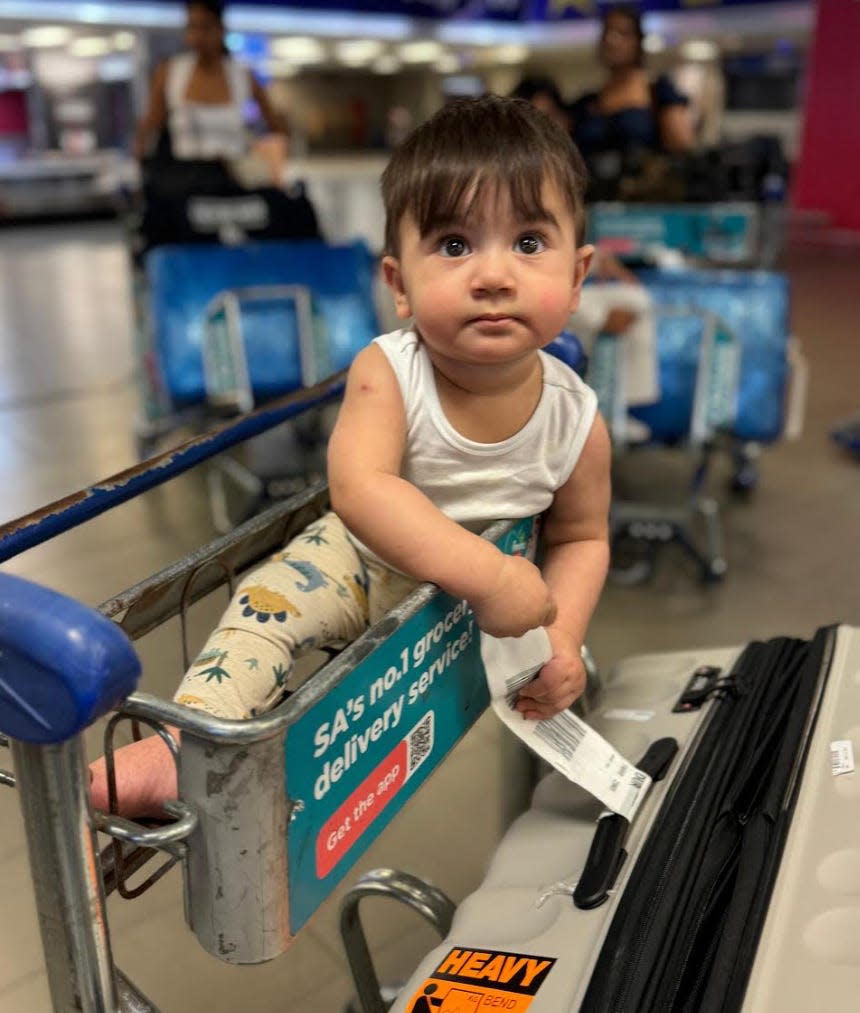
Digital nomads from day one
Yusuf: Early in my career, I worked as a journalist and traveled to many difficult places, covering war and conflict.
Then, in 2015, my wife and I moved to India after I got a job at the Hindustan Times. We moved to London in 2016 when I got a job at CNN International. At CNN, we noticed the critical lack of diversity in the media.
Sumaiya: In 2017, we started a project training communities to tell their stories on mobile devices, which became our media business, Seen TV. Between 2017 and 2020, we delivered training to people in over 100 countries.
It demanded a seriously nomadic life with no apartment, car, or postal address. We only slowed down in 2020 due to COVID.
Yusuf: Building Seen TV, we fought to be the opening speaker or keynote at conferences and events.
After landing the first few, we used video footage to send to other speaker events, which had a snowball effect. In addition to being paid to speak, flights, food, and accommodation were covered.
As young people on an international speaker circuit, it was an amazing way to see the world at no cost.
From 2017 onwards, we didn't pay rent and had no direct debits, gym membership, or phone contracts. We were in a different place every few days.
Sumaiya and I would often be double booked, speaking in different locations.
We could feel like two ships passing in the night. Our marriage involved meeting in airport lounges, and it was hellishly tiring.
Sumaiya: COVID forced us to spend longer periods in a few locations and build our media company. Although terrible, the pandemic slowed our schedules, and we could develop our business.
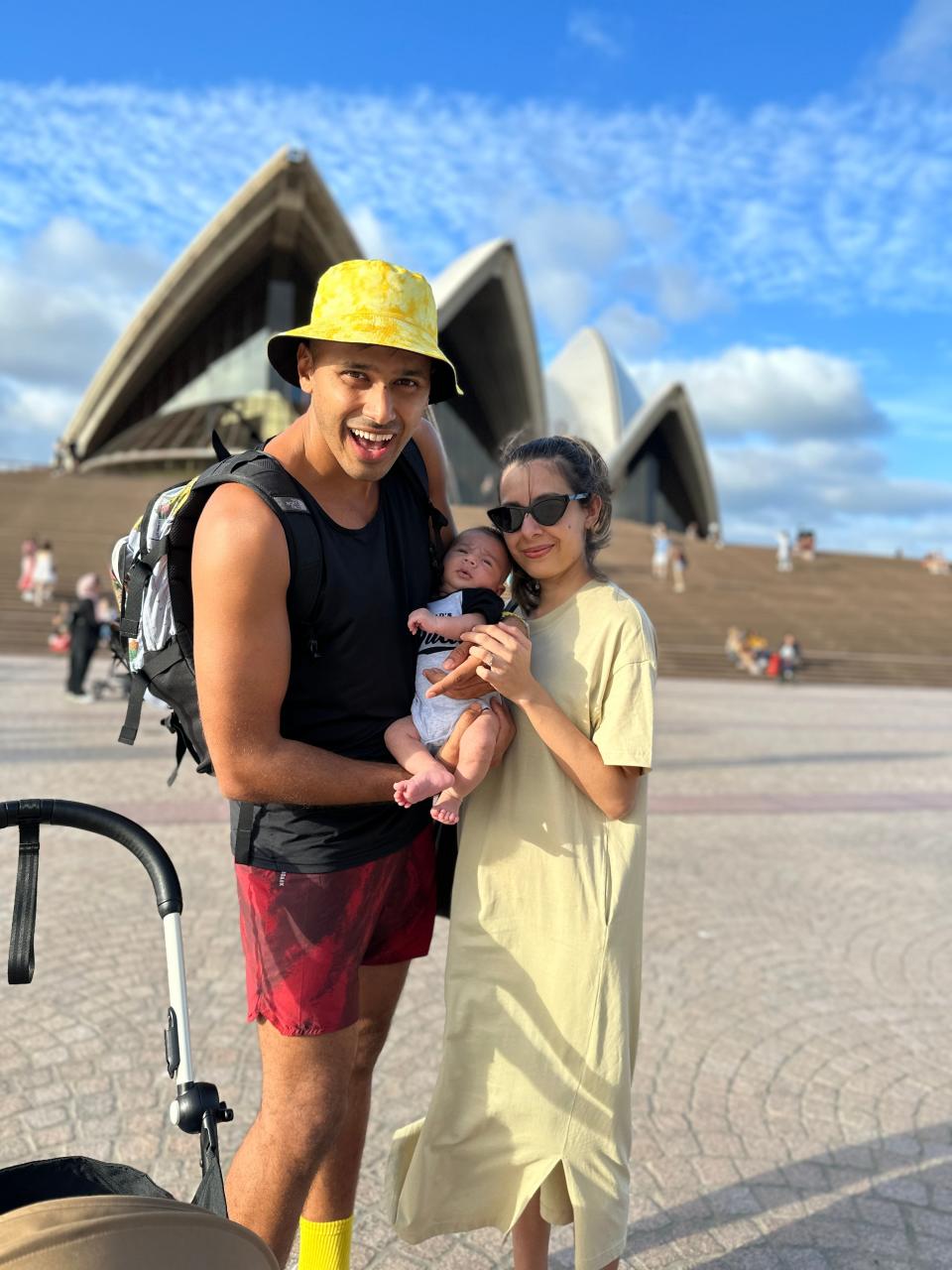
Adapting Noah to nomad life
Sumaiya: Now, we're building our company and raising Noah, our 14-month-old, as best we can.
Yusuf: Settling down has never been on the cards. Time differences and travel have been the only constants in our marriage. Everyone said we'd settle down with a baby. Our question was: why?
Sumayia: Being pregnant while traveling was difficult, especially in busy airports.
Once, while traveling alone in Sydney airport, I was collecting my bags when a woman rushed past and knocked a trolley into my stomach. I started crying, and the woman shouted at me and rushed off. Fortunately, both Noah and I were fine, but with a visible bump, I was extra careful on the move.
Yusuf: I was in a different country, about to give a speech when it happened. I felt helpless.
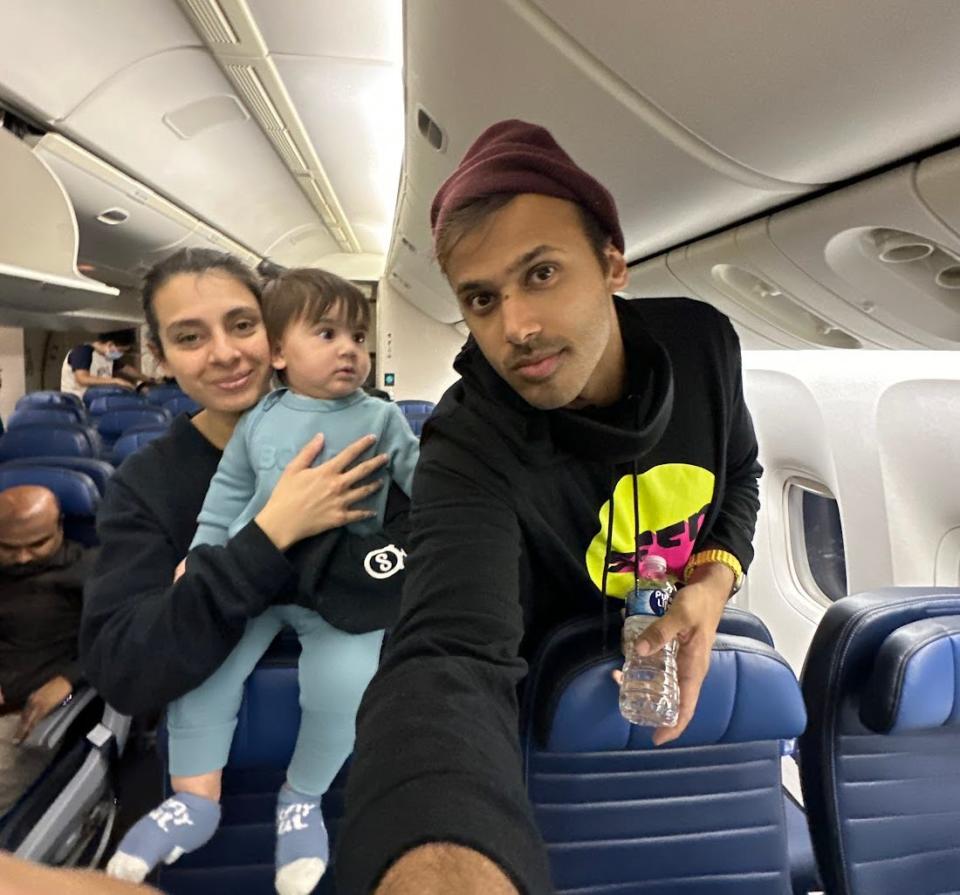
Living in hotels with a baby
Yusuf: Since Noah, we're still nomadic but stay at each destination for longer, between a week and a month. Our team is dispersed across South Africa, the UK, the US, and India. We continue to travel to speak at conferences, run events, and attend business meetings. We've no fixed address and mostly stay in hotels.
Living in hotels with Noah is chaos. We're out as much as possible, and I do 80% of my work walking with him in my backpack. We get a better rate when booking one for 21 days or longer.
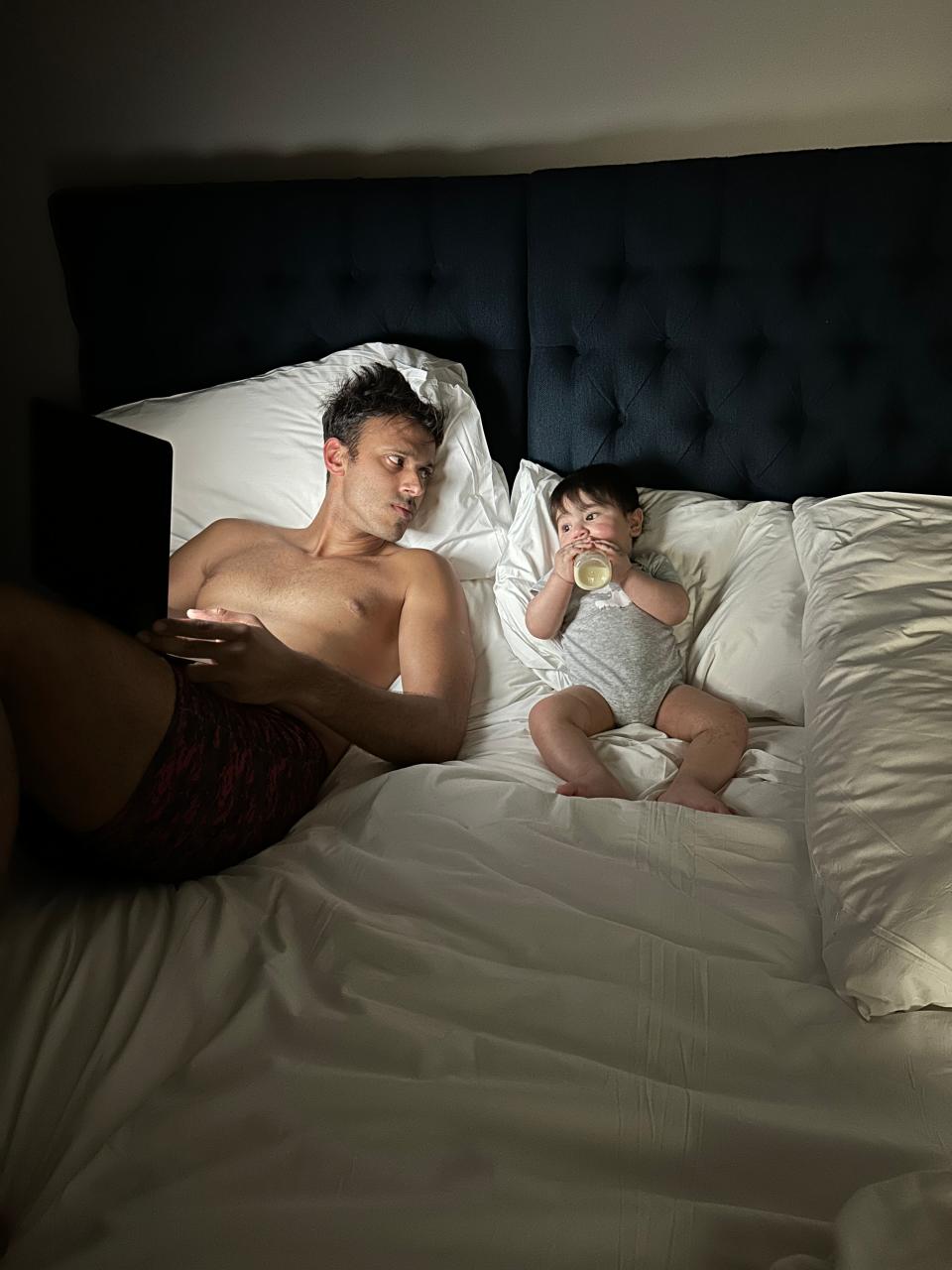
Sumaiya: We travel with hand luggage and prefer it. I hate having half the hotel room taken up by stuff.
Catching buses and trains with big bags is anxiety-inducing. Fitting everything in hand luggage is more difficult with Noah, but we manage.
Yusuf: Our three major expenses are transport, hotels, and food.
When we're on business trips, hotels are a business expense, which is the majority of why we travel.
In addition to hotels, we've also spent short stints at our parents' homes and lived in a rented van.
Fortunately, speaking engagements often cover our travel costs, but flexibility is crucial.
The biggest change since Noah was born is that we use fewer Ubers and more car rentals because Ubers often don't have baby seats.
Noah's under two years old, so we don't pay much for his flights. But once he turns two, he'll need plane tickets, making our lifestyle more expensive.
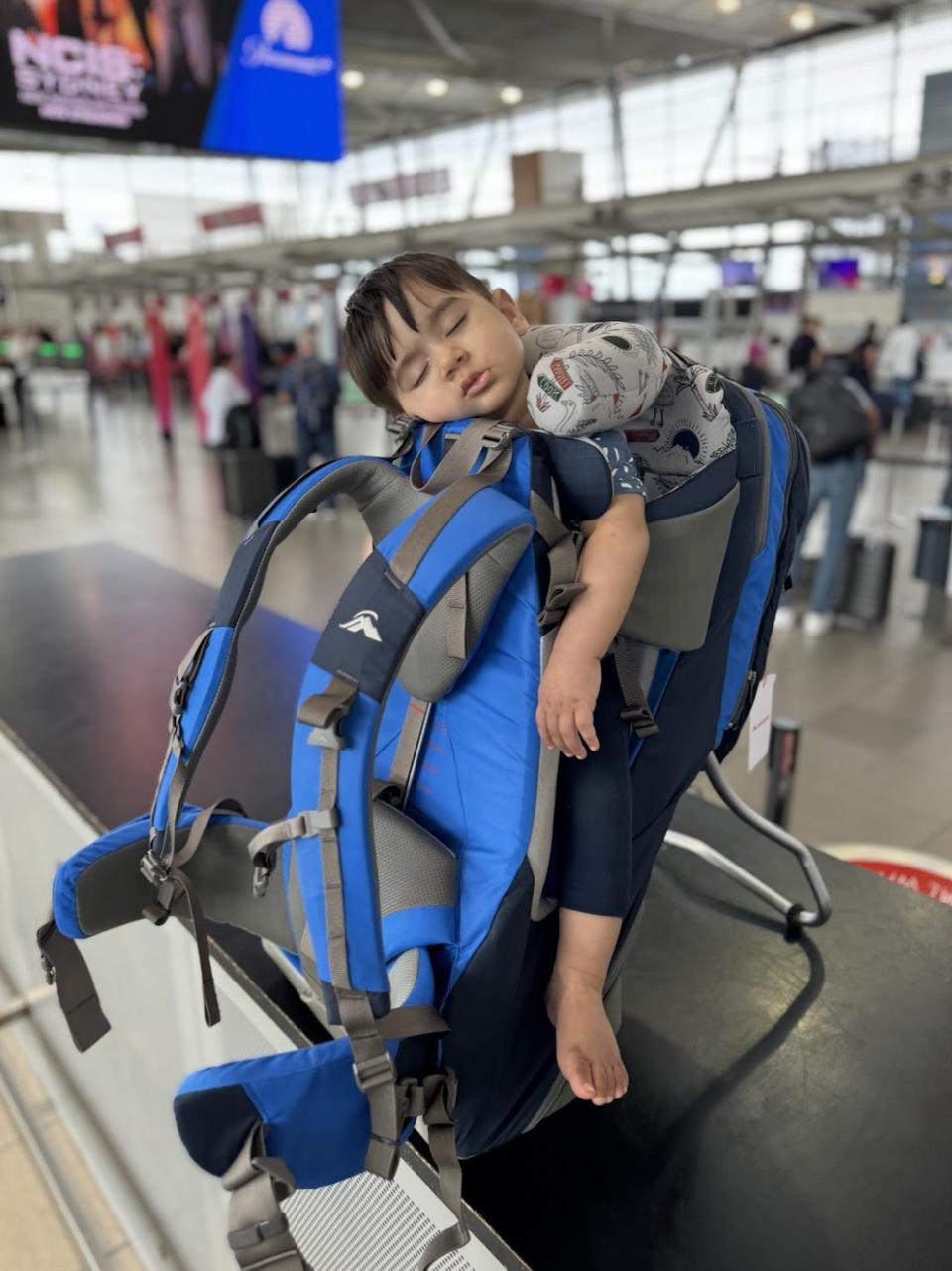
We have a different kind of village
Sumaiya: It takes a village to raise a kid, but neither Noah nor we have a traditional village.
Sometimes, I worry that I'm doing him a disservice by not having that stability. But, his experiences are positive in a different way.
Yusuf: His life is ridiculously privileged. He travels the world, hangs out on beaches, and meets people constantly. He's even come onstage at the UN in New York to deliver a keynote talk with me.
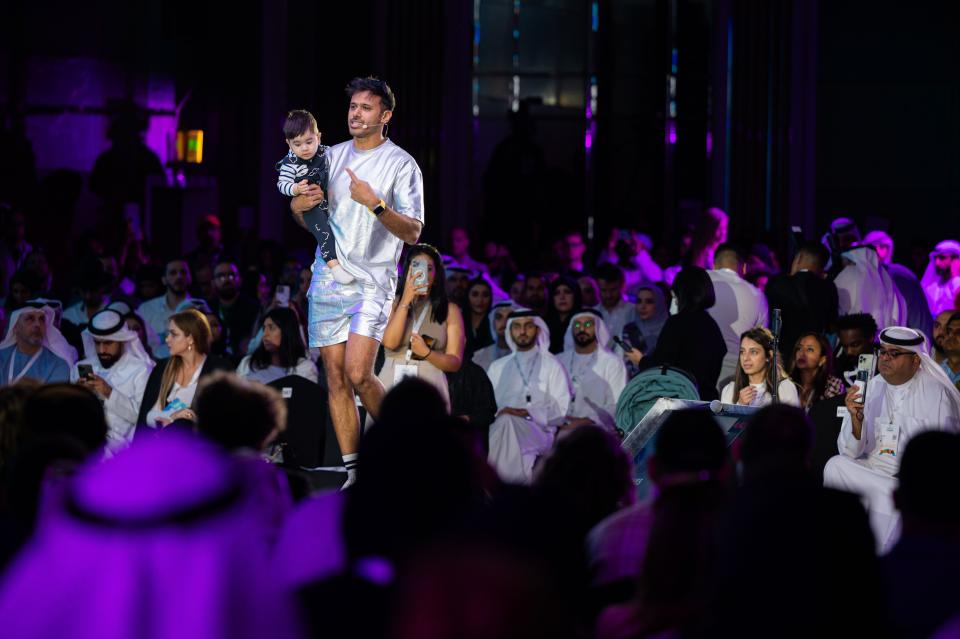
We can show up for family by attending events like Eid, Christmas, birthdays, weddings, or funerals at the drop of a hat. We can visit our family more often because we're always on the move.
Sumaiya: People have obligations that keep them in one place, and we're fortunate not to have those.
Long-term plans and a globetrotting nanny
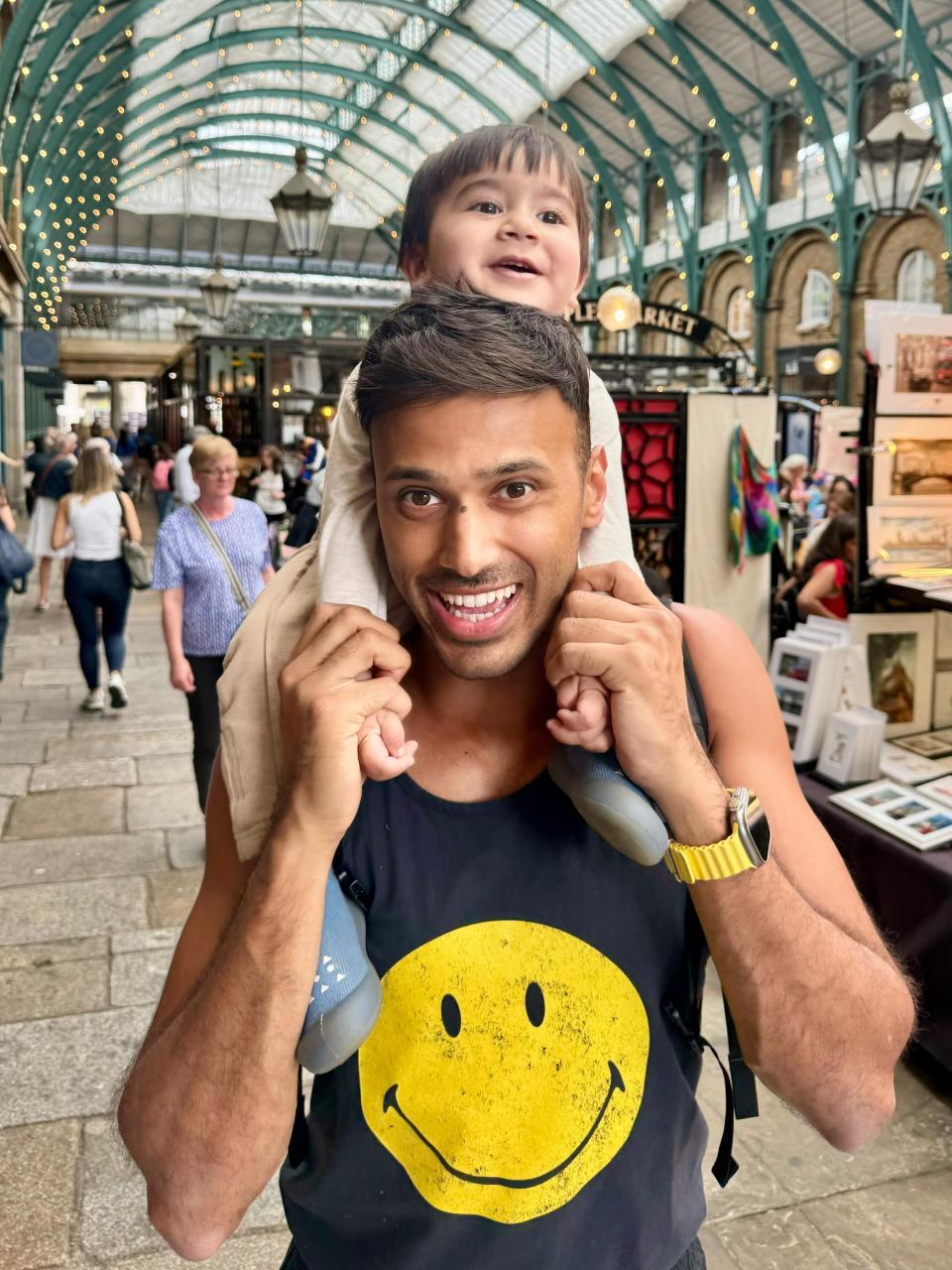
Yusuf: We respect the people who have a permanent home and understand why they do, but settling down in the suburbs terrifies us. Provided we stay healthy, we'll continue to live like this.
Right now, the pace is insane, but we want to keep taking advantage of the opportunities for us and Seen TV before Noah turns two.
The next priority is finding a full-time nanny to travel with us. We rarely have people we can leave Noah with, so there are no date nights or downtime. In the last month, we've hired nannies in some cities, which was game-changing.
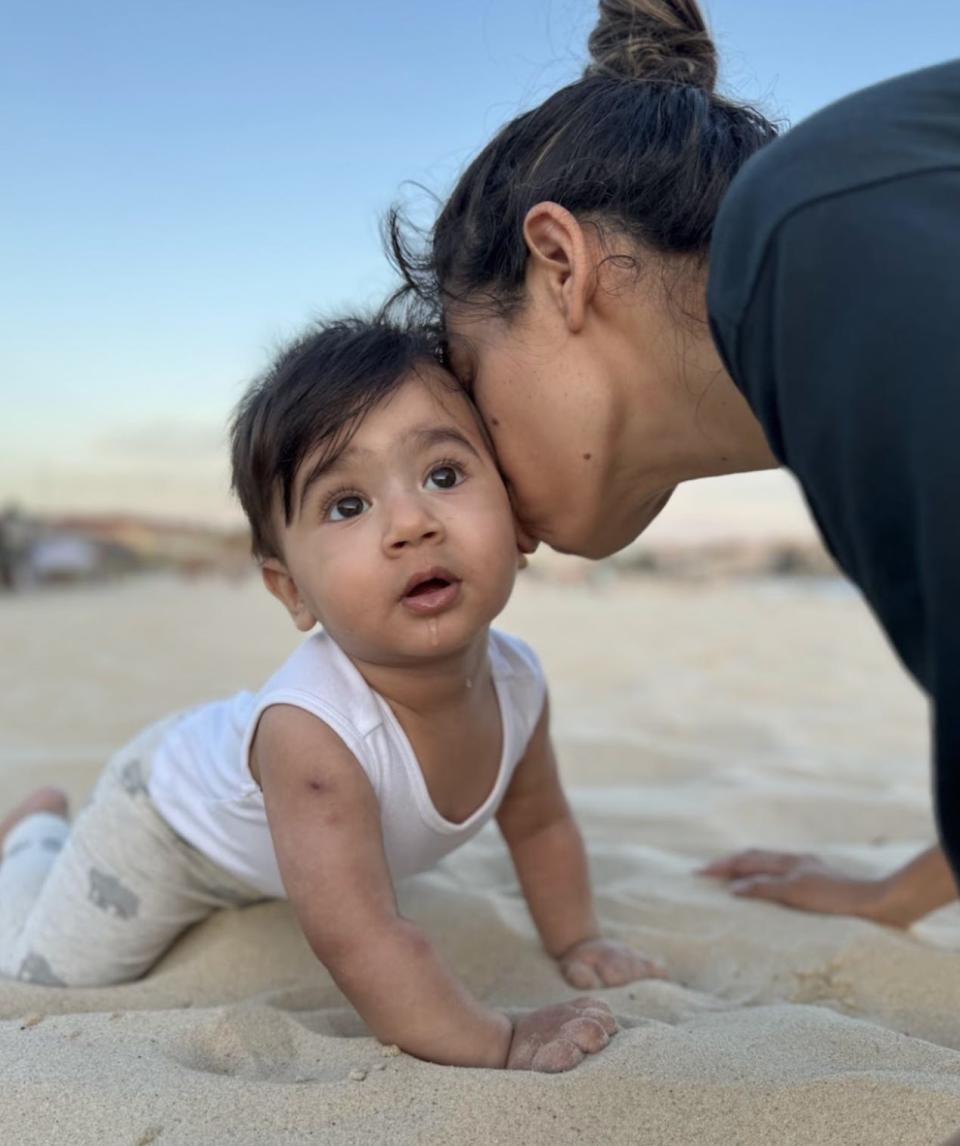
Yusuf: We plan to keep traveling extensively before Noah starts schooling but stay longer in each place, perhaps for a month or even a year. Options like unschooling, homeschooling, or remote learning appeal to us rather than conventional schooling.
Sumaiya: You can build a routine without a fixed location. For example, Noah can have story time in bed anywhere. We like to swim with him daily, which is usually possible wherever we go.
Yusuf: The key is finding the right partner. Opting for a nomadic life is complicated. You need flexibility, spontaneity, and minimal materialism in a partner.
Read the original article on Business Insider

